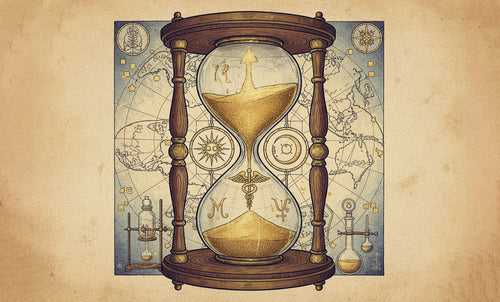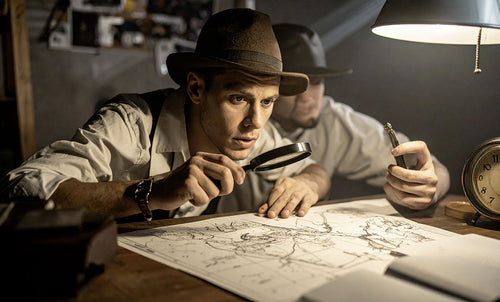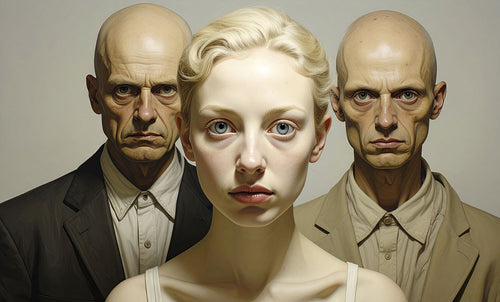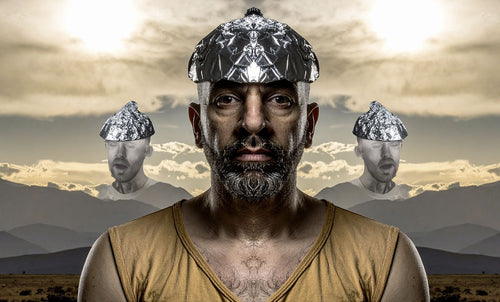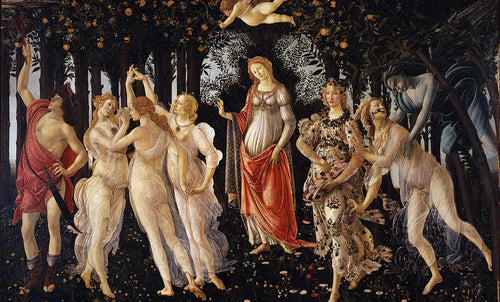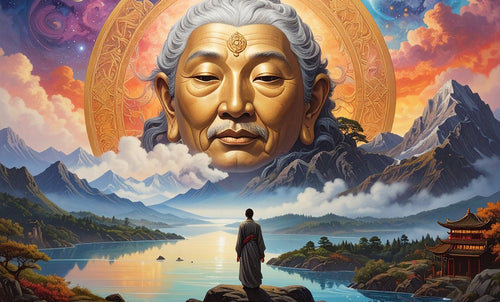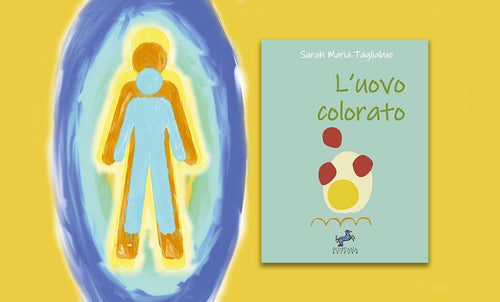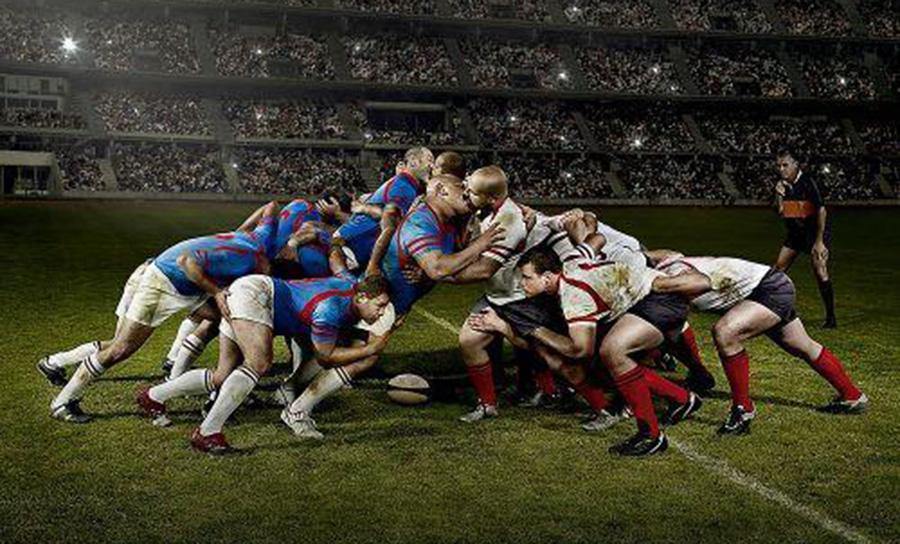
Preface, or Kick-Off!
Leonardo Anfolsi Leonardo Anfolsi Reiyo Ekai introduces "THE ALCHEMICAL OVAL" by Corto Monzese:
We need to rejoice and laugh seriously with our life.
The difference between the existence of an anatomical body and Real Life can only be determined within the melee or in any case in living actions.
Some things don't happen at the tobacconist's...
So we all need a key moment.
And then?
Precisely.
Maybe THAT THING called Enlightenment (Satori) or even a simple momentary Kensho can happen even at the tobacconist, but the first few times it is only in moments of heroism that THAT THING happens.
And it takes continued, frantic, aggravated heroism.
You make something happen to a man that creates the opportunity for THAT THING to actually happen. You return to What you really are.
Then you realize it happens to you when you really breathe. Really walk. Really make love. Really work. Really drive. Really love.
So this is Real Life, not a paid spiritual vaudeville.
Some materialist thinks that all this is obvious and just fanciful, a mystical phantasmagoria due to an overexcitation of the hypothalamus or the amygdala, but it is not so. We are sorry.
The universe truly turns upside down and returns to being what it truly is.
We've always had this in mind.
From a time without beginning.
But now we see it.
And then, many believe that laughing in an initiatory way is a sort of “screwing everything up” and they are dramatically wrong.
How can you explain to him that the most gross lies come from lowering the grapes to the level of the fateful fox or explain the trick to Buridan's famous donkey?
Even the donkey has to solve the problem himself.
And what about the sword of Damocles or that of Brennus?
Those generally hurt everyone, but they are necessary to understand and to understand; always.
To avoid spiritual commitment throughout one's life is a great trap.
Those who fall for it will never do the research that is so dear to their hearts, but will trust the usual anti-guru on duty. And so they stop going to Holy Mass or the Lodge, they stop doing Meditation, they stop training with a valid Master, just because the usual vanguard mug dishes them up the verb of freedomàààà : Zavattini was right to call it that, indeed.
I am pleased to introduce this apparently disrespectful book. A Zen monastery should be something quite different from the locker room of a rugby team, even if, inevitably, a certain esprit de corps, even of a sweaty body, is essential even among those who meditate intensively.
All the true practitioners of Meditation I have known do not like to represent the rarefied regions of the spirit, but vibrate without wanting to with the innate presence of the eternal witness. They do not like minuets and do not stand there counting themselves, and I have known many of them: they are cheerful, funny, direct. Alive.
And in an instant, with their smile or scream, the entire universe is revealed.
When we are in Meditation, we know well that from stellar distances Masters whom we do not know, neither by face nor by name, are practicing with us. And this is how we are millions who pretend to see the world as it is.
This book is sincere though chatty and has continuous strokes of literary genius. So this book is a book.
Here, through an extreme attempt, strength is distinguished from prevarication, pleasure from compulsion, even homosexuality from its most naive and useless by-products (what courage!), courage certainly from insolence, daring – thanks to the rules of the game – from confusing aggression.
It could be a book to introduce “certain” topics in which “G” is not an orgasmic point and does not “stand for God and Geometry” but is an unavoidable character with a Transcaucasian moustache and pronounced Gurdjieff: it is to him that we owe the public declension in a spiritual sense of the verb “to pedal”, something that in every generation the unwary try to remove in the hope that there may be a loophole for the more delicate.
If you like, the Masonic aspect is also present in this little book, but only because the reader becomes a silent apprentice now at the mercy of the prolusion, the table and the closing of the proceedings, always perpetrated by the same Corto Monzese. Three blows of the mallet, all in order, bla bla bla and then home.
As for iconography, I would prefer to go back to primitives, in which case I would not so much cite Masaccio, as Monzese did, but rather cavemen. Which would also be in keeping with rugby.
That said, this remains a refined and cultured book that should be read with attention as well as with sympathy.
My commitment as a Meditation teacher takes me, in Italy and in the USA, among pensioners, veterans, entrepreneurs or students, in any case all people who want to meditate to soak in this vast universe and gently sink into it, but also to quickly solve all those practical or relational problems, thanks to the power of penetration that a lucid and sharp mind gives you.
Meditation is not only good for you but also heals you and keeps you vigorous, steady and intuitive.
I take this opportunity to invite you to look for my sites and all the things I have published with the publishers Fontana, Venexia and with L'Ottava di Franco Battiato, but also to come and participate in the meditation meetings that I hold every month and every week.
At this point, the reader is forced to endure the description of the only true and heartfelt rugby match he has ever played.
I should start by saying that I was a little champion in the hundred-meter race, so much so that they wanted to send me to CONI to train for the Moscow Olympics. I didn't want to go when they explained to me the reason for Mennea's anger and what he was really saying when he kicked off, without sound, during the filming of the news.
Then I played baseball and became a young promise for Amaro Montenegro, which was the European champion team at the time.
That too ended; the Italian nursery broke down and the young firs dried up without a second thought from the managers.
And so a few years later I found myself at the agricultural school in Bologna, with two players from the Italian junior national rugby team in my class, Girotti and Ogier: and they forced me to play.
Ogier was staring at me with his big blue eyes, he seemed to be saying “come on, take me” while his little legs were turning to the right or left as if they were detached from the body. And you were there doing nothing.
After a couple of frustrating games we played against another class with the gym teacher acting as referee.
I was a baseball star used to winning. At fifteen I would run toward balls without batting an eyelid, the hard jack rabbits, not the grapefruit softballs; if they went off the trajectory on a false bounce it was like taking a punch from 60 or more miles per hour on just 1-1/2 inches.
And it was then that they put me, not without cruelty, to mark one of the pylons.
This one, huge, went where it wanted. Instead I decided that it had to feel me and that it had to fall anyway.
And the teacher was doubled over with laughter and almost swallowed the whistle while I stopped the pachyderm by throwing myself headlong into his legs, I kicked him and kicked him or pushed him with my studs on his heels when he brought the ball, like Benetti. And then the teacher, being so amused and amazed, was also curious to see how it would end.
The prop, poor guy, turned bovinely to the teacher/referee, imploring him “but Prooof... Socciaaaa... But he's tired of me here! Proooof! Whistle well, ouh!” .
I understand that the poor prop wanted to keep himself whole for the match - the real one - on Sunday; in fact every Monday the crowd of students - among whom there were many rugby players - seemed at times limping for that heroic, illustrious reason.
And here I suspected that there was a comical revenge on the part of the teacher, as if to say "go on Sunday and get zacagnare and then during the school holidays you'll be my aunt?" .
Well, towards the end of the “friendly” match the big guy started chasing me, now limping, and the race continued even outside the field while I heard the teacher who continued to laugh advising me “Anfolsi! Run, run, more, more!”...
Having escaped from athletics, baseball, then rugby and then mountaineering, I ended up above all meditating and realizing the “dis-sport” that precedes everything, ultimately the true, noble meaning of “sport” which had to be without any gain or reason.
Here you are.
Meanwhile, the pylon kept running and kept repeating something, but I didn't have time to listen to him. He was now visibly purple from fatigue. I cut through the quarries, then across the fields. Finally I returned to the institute passing by the presidency.
I was concerned because the pylon was really a pylon, not a paperweight.
Then we became friends.
And I think this is also part of the rugby game that is played without borders.
Leonardo Anfolsi Reiyo Ekai

